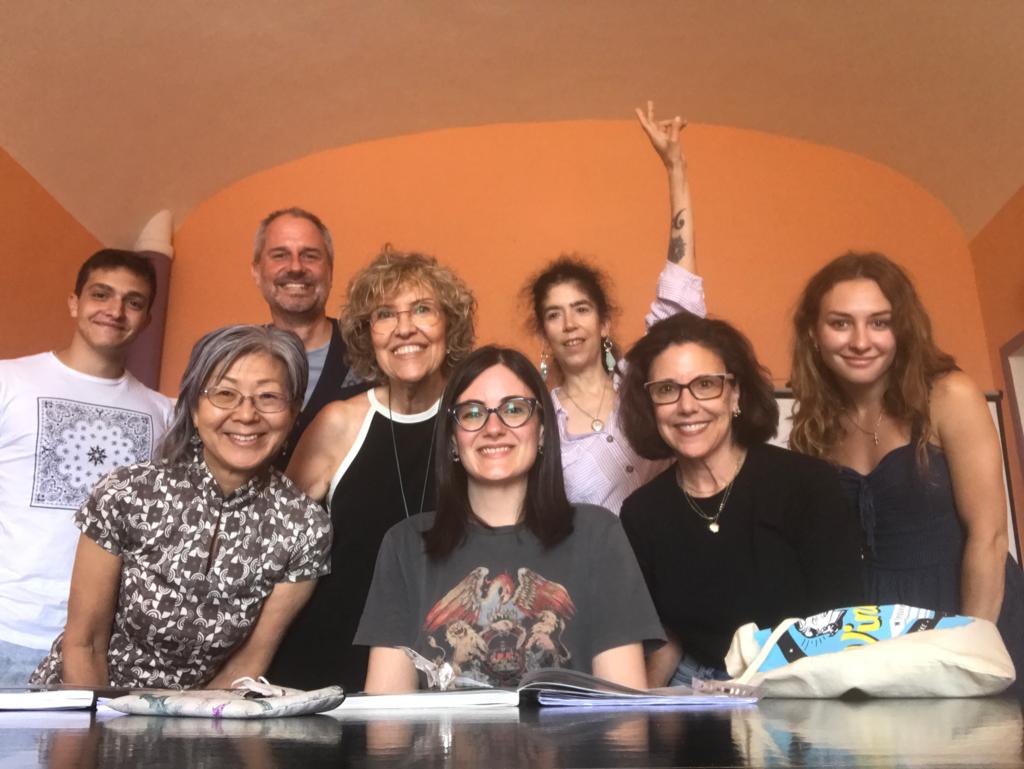Before I came to Siena, I thought “magari” was a Roman term. The reason I say this is because I did not make note of it at all the previous summer when I was in Italy, and I first started noticing it when I was in Professor Sabrina Ferri’s Modern Italian Literature course. I heard her using it a lot, and I asked her to clarify the word; she said that it meant “maybe”, and that Romans like herself use it a great deal. Moving forward, I assumed it was part of the Roman dialect. In fact, when I arrived to Rome May 12, I very quickly started noticing its usage as I had not before. However, when I arrived to Siena, and I started to hear Sonia and Bianca – my two instructors – using it very frequently, it changed my conception of the word as pertaining to a more southern dialect. I also learned its meaning can be adapted to “as if!” or to a sense comparable to “oh, I wish.” It seems prevalent throughout the country. It was a pleasure to learn this, because each piece of information such as this continually molds my understanding of the Italian language and the dialects.
I also have been learning a great deal of Sienese dialect. I reflect upon my own residence in the state of Florida. Are there words, phrases, or pronunciations that are distinctly Floridian? It is hard to say as an “insider”, but it would be interesting to explore this on the Internet in my free time. And this is keeping in mind that the state of Florida is comparable in size to Italy, though smaller at least somewhat. What really strikes me is just the degree of variation in accent and expression between the many regions of Italy. Imagine that my Sarasota County were to have differences from the adjacent county: Lee County. What is even more puzzling to me is the distinction from city to city. For instance, there are differences in pronunciation between Siena and Florence, separated only by a one-hour bus ride. This was something framed by my teachers, not something I have picked up on my own. However, it has been incredible to notice the way Sienese people speak in dialect on the streets and in businesses after receiving some “pointers” in class. For instance, “la casa” is transformed into “la hasa”. Hard C’s are pronounced as H’s, which in my opinion is a bit reminiscent of the manipulation of different letters’ pronunciation between various countries in Latin America. For instance, it brings to my mind what my Dominican friend Jazmin told me years ago about Dominican Spanish: oftentimes the R’s and S’s are not articulated as much or are sometimes virtually eliminated from words in the spoken language. Or how Puerto Rican Spanish sometimes abbreviates certain words, allowing for more fluidity in daily speech. I love being able to learn about these subtle variations between dialects in Italy, and then expanding my understanding of dialects as a phenomenon across various languages.
As part of the DA School, I have been able to develop some friendships with Italians with whom I speak to in Italian. This is wonderful practice, and it allows me to implement new phrases I learn in school. For instance, I constantly hear Bianca saying “ci sta….ci sta…ci sta.” What does this mean? I asked her, and she told me it was a more colloquial expression of “ha senso”, or “that makes sense.” “I see what you’re saying; that tracks.” Since she shed light on this, I find myself incorporating “ci sta” myself into my conversations, hoping to make it a more natural and intuitive part of my Italian language use. I want to make my transition into fluency to feature some phrases that Italian themselves use, because I believe this makes me more approachable as a speaker of Italian. In other words, rather than default to English upon hearing my non-Italian accent, a native speaker might think “Wait. She seems eager to speak with me and she is not speaking perfectly, but she has some understanding of colloquial speech and I appreciate her effort. I will respond to Italian and in turn help her expand her knowledge.” This brings me to another point. I so treasure when an Italian might hear me stumble slightly over some words and yet still dignifies my efforts with responses in Italian, even recognizing my learning phrase. This patience and understanding touches my heart, and these individuals often remain in my memory as the days pass.

From left to right: Volker (Switzerland); Catherine (Switzerland); Gabe (U.S., also Notre Dame); Claudia (Switzerland); Yours truly (U.S.); Sonia (Siena native); Lisa (U.S., recently immigrated to Italy).
Front: Virginia (Spain)

From left to right, back: Gabe (U.S.); Volker (Switzerland); Virginia (Spain); Lisa (U.S.)
From left to right, front: Satomi (Japan); Bianca (Agrigento, Sicily – moved to Siena); Mary (U.S.); Yours truly (U.S.)